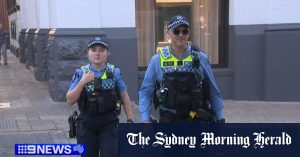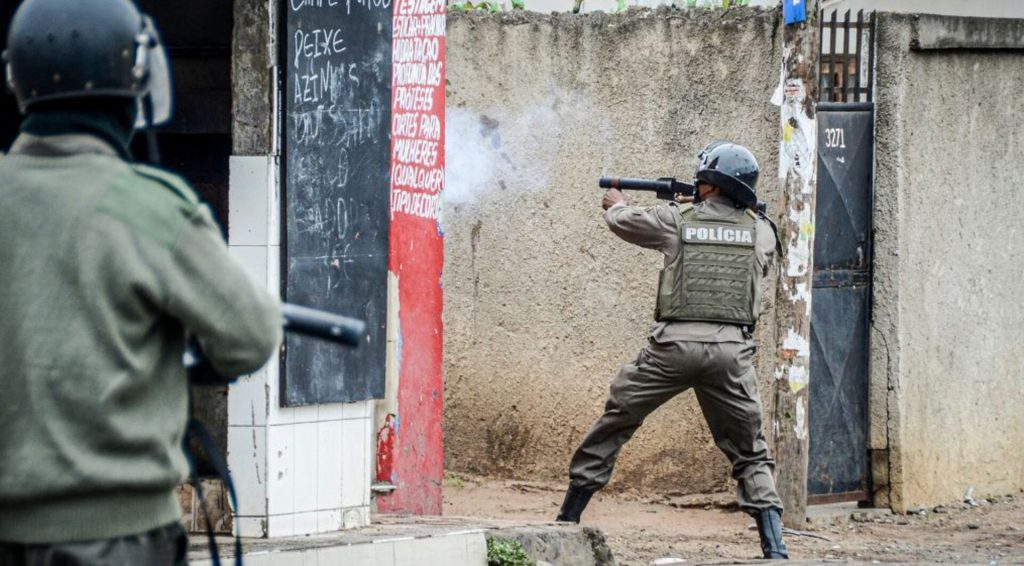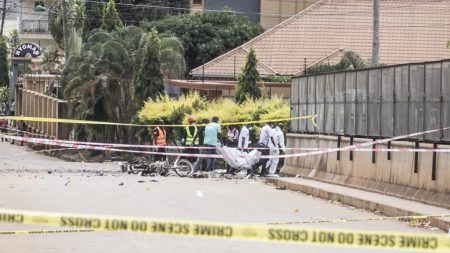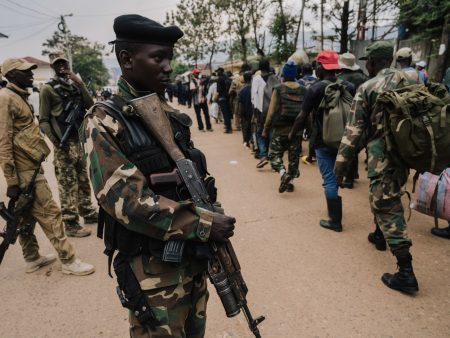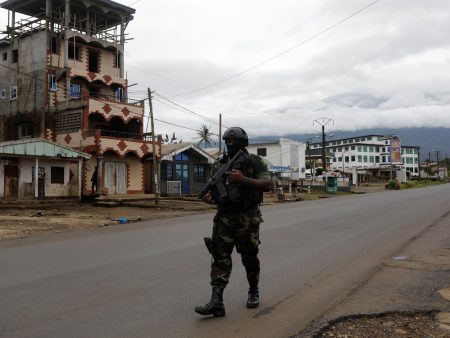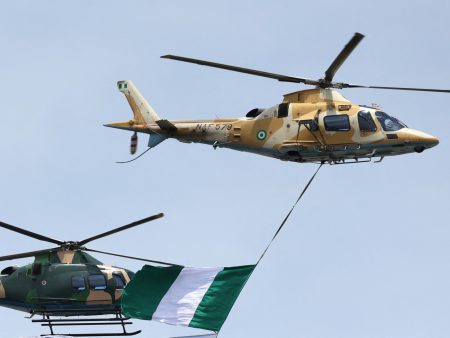The disputed presidential election of October 2024 in Mozambique has ignited a volatile political crisis, characterized by escalating violence, mass arrests, and deep societal divisions. Hundreds of individuals have been shot, and thousands more arrested in the government’s brutal crackdown on dissent. More than 150 protesters have lost their lives in clashes with security forces, painting a grim picture of a nation teetering on the brink. The contested election results, which saw the incumbent Frelimo party candidate, Daniel Chapo, declared the victor, have been vehemently rejected by the opposition and sparked widespread protests across the country. Opposition groups allege widespread electoral fraud and manipulation, claiming the vote was rigged in favor of Chapo, further exacerbating the existing political tensions and fueling the ongoing unrest. This atmosphere of distrust and animosity has deepened the polarization within Mozambican society, creating a fertile ground for continued conflict and instability.
At the heart of the crisis lies the fundamental question of legitimacy and democratic governance. The opposition, led by Venacio Mondlane of the Podemos party, contends that the election was stolen, demanding a recount and fresh elections to ensure a fair and transparent democratic process. They argue that the observed irregularities and alleged instances of manipulation undermine the integrity of the electoral process, thereby rendering the results invalid. Mondlane, currently in exile, has called for continued protests and resistance against the Chapo government, further escalating tensions and setting the stage for potential prolonged conflict. His calls for civil disobedience resonate with a significant portion of the population who feel their democratic rights have been violated. Conversely, President Chapo, while acknowledging the unrest, has appealed for calm and national dialogue, emphasizing the need for unity and stability. He portrays himself as the legitimately elected leader and calls on all parties to respect the outcome of the electoral process.
The political impasse is further complicated by the deep-seated historical, economic, and social divisions that plague Mozambican society. The Frelimo party has been in power since independence in 1975, creating an entrenched political system that the opposition claims stifles dissent and limits democratic participation. This long-standing dominance has fueled accusations of cronyism, corruption, and a lack of accountability within the ruling party. Moreover, the country grapples with significant economic disparities, with a vast majority of the population living in poverty while a small elite enjoys the benefits of economic growth. This inequality fuels resentment and frustration, creating a volatile social landscape susceptible to unrest. The deep-rooted grievances related to poverty, unemployment, and lack of access to basic services further amplify the political crisis, adding to the complexity of the situation.
Adding to this volatile mix is the influence of external actors and regional dynamics. Neighboring countries, with their own vested interests in Mozambique’s stability and resources, may play a role in shaping the trajectory of the crisis. The potential for external interference adds another layer of complexity to an already precarious situation. The international community, including regional organizations and international bodies, faces the challenging task of mediating the conflict and promoting a peaceful resolution that respects the democratic rights of the Mozambican people. The involvement of international actors will be crucial in facilitating dialogue, ensuring accountability, and promoting a lasting solution to the crisis.
Fredson Guilengue, a senior program manager at Rosa-Luxemburg-Stiftung, an organization focused on social justice, offers a critical perspective on the crisis, highlighting the socio-economic factors that contribute to the unrest. He argues that the underlying issues of inequality, poverty, and lack of access to essential services create a breeding ground for discontent and fuel the flames of political instability. He emphasizes the need to address these systemic issues to create a more just and equitable society, thus reducing the potential for future conflicts. Guilengue advocates for a deeper understanding of the root causes of the crisis, moving beyond the immediate political issues to address the underlying socio-economic challenges that contribute to the ongoing instability.
Helder Mendonca, a politician with the opposition Podemos party, provides an insider’s perspective on the political dynamics at play. He asserts that the election was marred by widespread fraud and manipulation, highlighting the irregularities and alleged instances of vote rigging that undermine the legitimacy of the results. He argues that the government’s crackdown on dissent is a desperate attempt to silence opposition voices and maintain its grip on power. Mendonca calls for greater international pressure on the Chapo government to respect democratic principles, ensure accountability for human rights violations, and create a level playing field for future elections. He believes that a truly democratic process, free from intimidation and manipulation, is essential for achieving lasting peace and stability in Mozambique. The competing narratives and perspectives of the various stakeholders further complicate the situation, making a peaceful resolution even more challenging.

